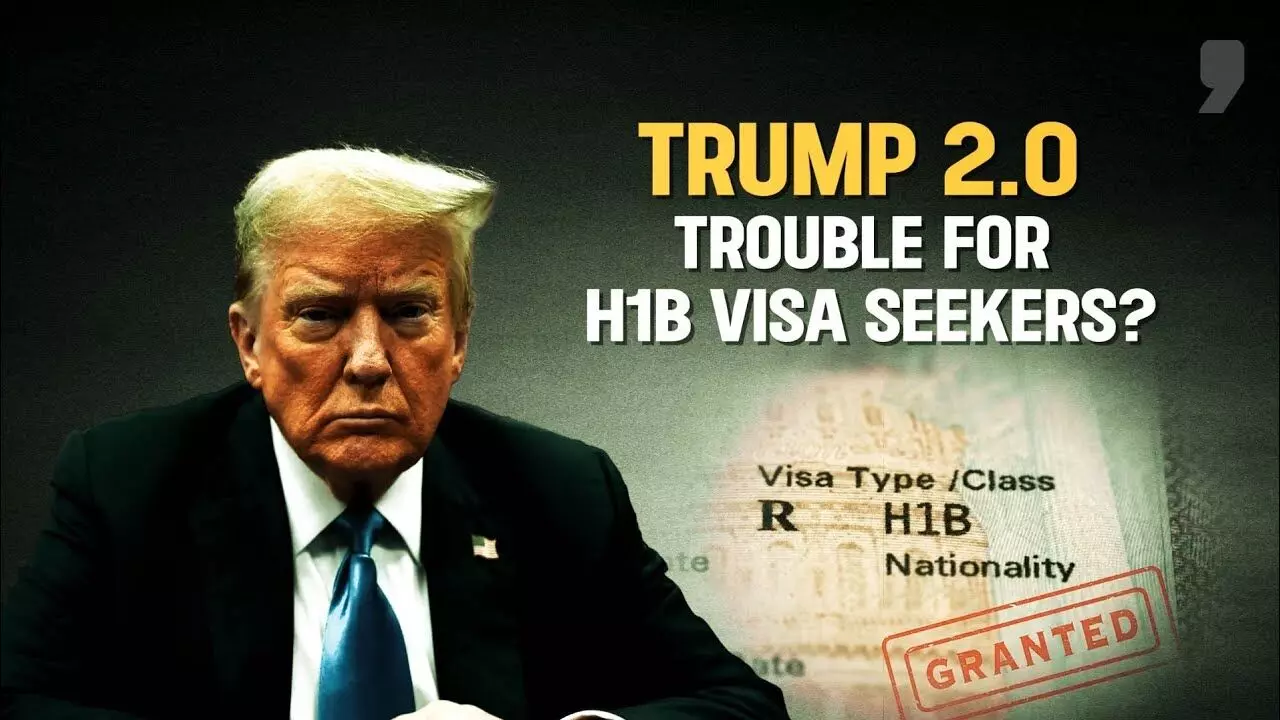Trump's Stance on H-1B Visas Forces Indians to Reassess Their American Dreams
Explore how Donald Trump's return as U.S. President impacts Indian professionals on H-1B visas. Learn about policy changes, challenges for immigrants, and implications for students and workers navigating the American Dream.
Trump's Stance on H-1B Visas Forces Indians to Reassess Their American Dreams

Indians have long been the largest beneficiaries of the U.S. H-1B visa program, accounting for over 70% of issued visas. However, with Donald Trump set to return as U.S. President, many Indian professionals are scrambling to secure their status in the United States amidst looming policy changes.
The Singh Family’s American Dream in Jeopardy
Nihal and Kajal Singh (names changed), both tech professionals, epitomize the classic immigrant success story. After earning their Master's degrees in the U.S., they landed H-1B visas. Nihal's employer even sponsored him for a green card, allowing them to purchase a home and settle into a comfortable life.
But in mid-2024, their stability began to waver. Kajal’s startup struggled to secure funding, and by September, she was laid off. The Singhs initiated the process to transfer Kajal to Nihal’s dependent H4 visa with work authorization. Though complicated, they were optimistic about navigating this transition until the U.S. presidential election results changed the landscape.
Trump’s policies, aimed at overhauling H-1B renewals and work authorizations, now threaten their carefully laid plans. “We’re not sure if we should keep the house we bought,” Kajal shared, underscoring their uncertainty.
Widespread Uncertainty for Indian Professionals
Each year, the U.S. issues 85,000 H-1B visas, including 20,000 for those with advanced U.S. degrees. Given the demand, visas are allocated via lottery, and many Indians rely on these visas for employment and residency. As of 2023, approximately three million Indian immigrants lived in the U.S., with a significant portion dependent on work visas like the H-1B.
With Trump’s return, many professionals on H-1B visas are taking precautionary steps. Some, like Shalini Gupta (name changed), are expediting their visa renewals and avoiding international travel until after January 20, 2025, when Trump officially assumes office.
Others, like Dhruv Chatterjee (name changed), are considering costly "premium processing" to speed up visa extensions, which can take months under standard timelines.
Implications for Students and Future Immigrants
Indian students aspiring to study in the U.S. face their own set of concerns. Vikram Bhatt (name changed), who planned to pursue a Master's degree, is reconsidering his plans. “I can only repay my education loan if I’m allowed to work under the Optional Practical Training (OPT) program. If Trump eliminates it, my plans might change,” he said.
Lessons from Trump’s First Term
During Trump’s first presidency, several attempts were made to restrict the H-1B program:
Raising wage thresholds: Proposed increases in minimum wages for H-1B workers made it costlier for employers to hire foreign talent.
Defining specialty occupations more narrowly: This made it harder for roles like computer programming to qualify for H-1B visas, disproportionately affecting Indian professionals.
Higher denial rates: The rejection rate for new H-1B applications rose from 6% in 2015 to 24% in 2018.
Increased scrutiny: Requests for Evidence (RFEs) surged, adding complexity and delays to the visa process.
Although many of these measures were blocked or reversed under Biden, Trump’s expected return could reignite these policies, significantly impacting Indian workers.
Preparing for a Tougher Road Ahead
Law firms and immigration experts predict several changes to the H-1B program under Trump, including:
Stricter definitions of specialty occupations.
Limitations on third-party placements for H-1B workers.
Stricter wage requirements to discourage hiring entry-level H-1B employees.
A shift in the H-1B lottery system favoring high-skilled, high-paying positions.
Indian professionals and students in the U.S. are bracing for a challenging period ahead, trying to protect their American dreams in the face of potential upheaval. For many, navigating Trump’s policies will require careful planning, quick action, and perhaps a willingness to reconsider long-term plans in the United States.

